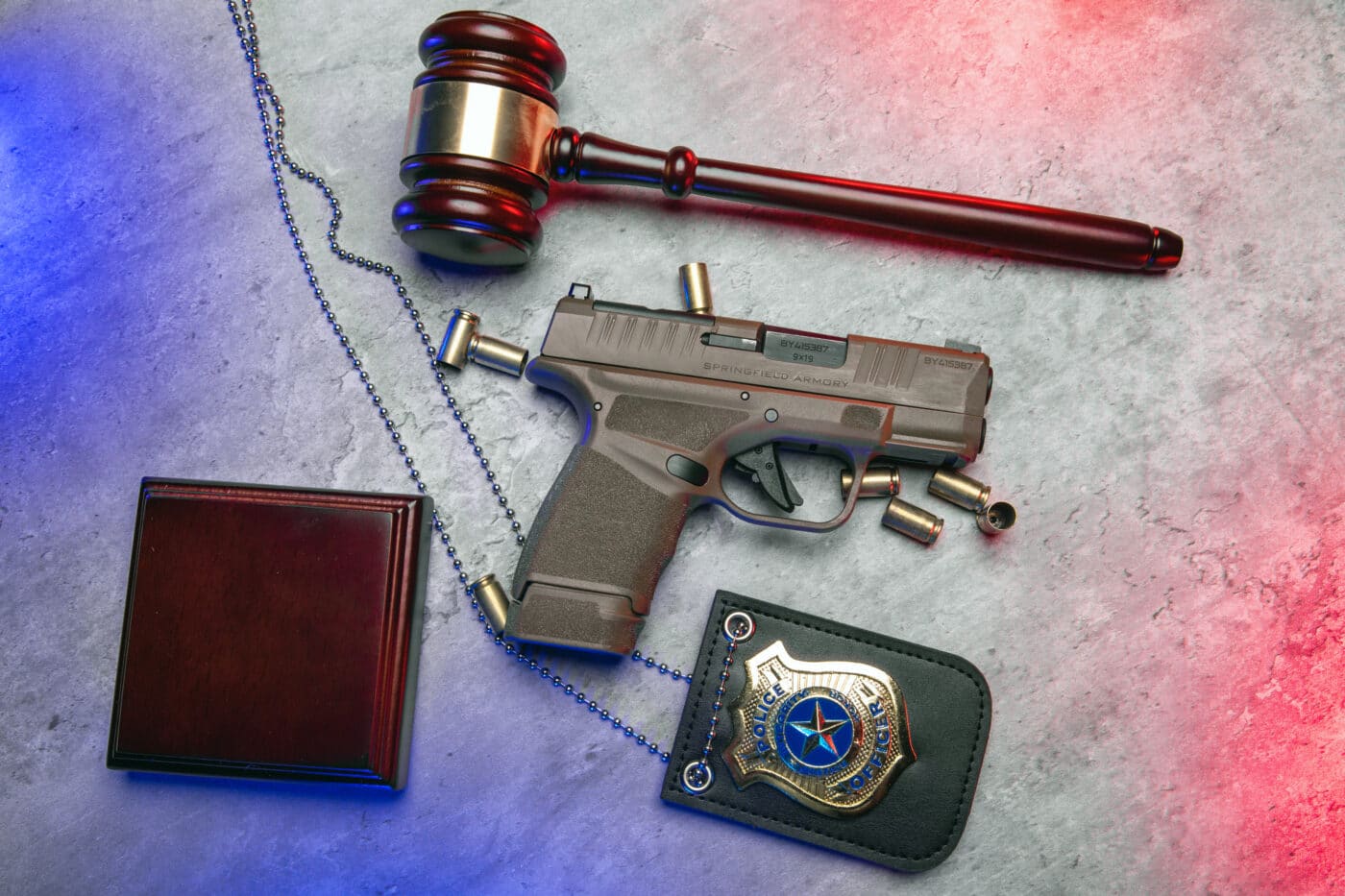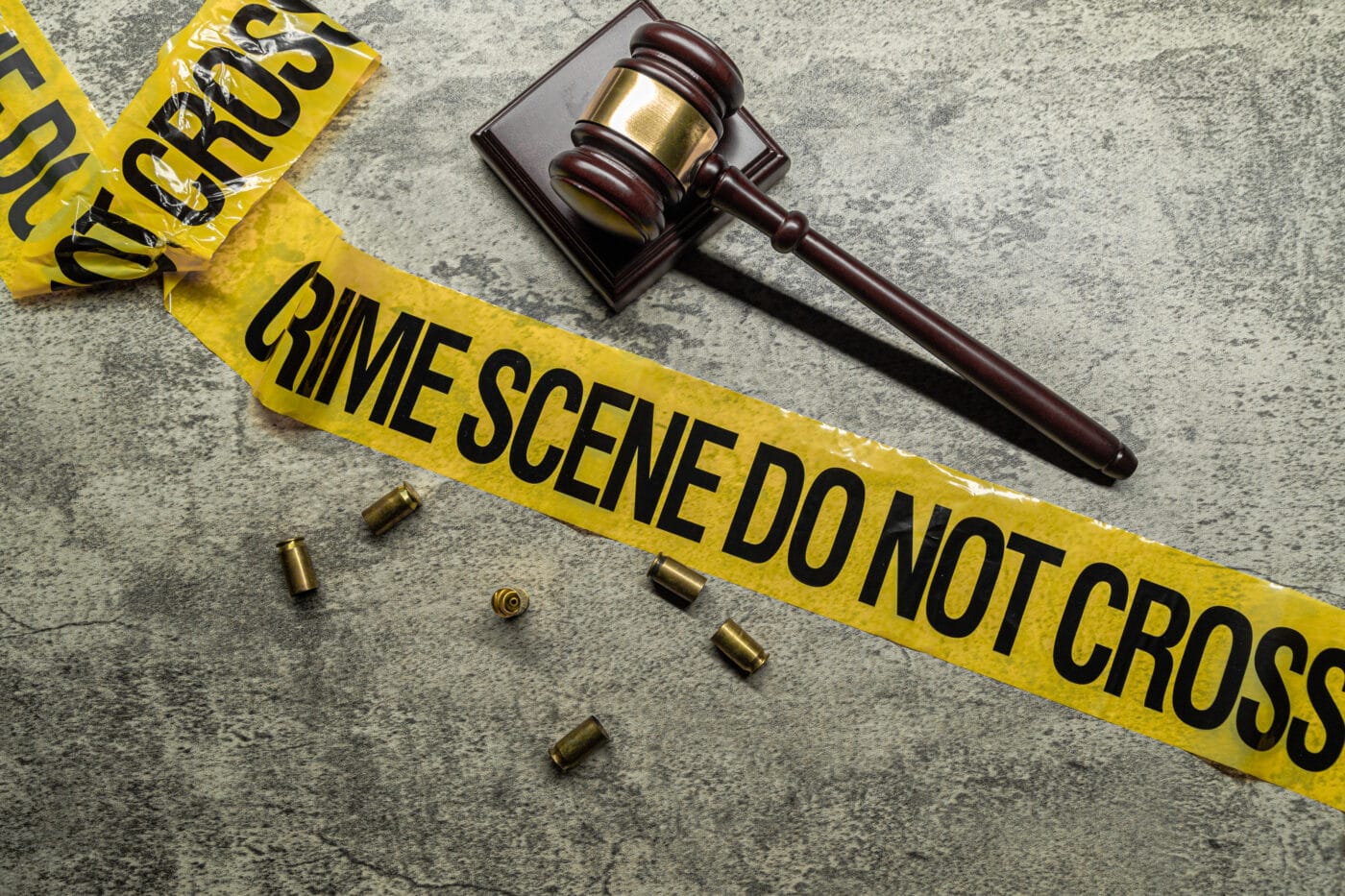Editor’s Note: Be aware of your local and state as well as federal laws and how they apply to carrying firearms and self-defense. This piece does not constitute legal advice. You can see part 2 here and part 3 here.
In this segment of “Tactical & Legal”, Rob Orgel, Lead Instructor at ER Tactical, discusses the many considerations, nuances, and the legal ramifications of being a responsible firearms owner with Magnus Eriksson, a criminal defense lawyer who practices in use of force law.
As formidable and seasoned experts in their respective fields, these two professionals discuss their thoughts on mindset, best practices and many other considerations when it comes to preserving life — should self-defense with a firearm be necessary — and how to best defend oneself legally thereafter. The following topics are covered in the video above:
- Interacting with law enforcement, post-engagement
- Preparation for civil lawsuits
- Considerations for your self-defense weapon
- Considerations for the type of ammunition you use in your self-defense firearm
- When to use lethal force

Being better prepared not only applies to selecting the most effective self-defense tools, but also when it comes to planning and preparing your legal defense strategies. Your personal training and mindset may not only help you avoid and/or survive potential life-threatening scenarios but also can help you to better navigate a courtroom ruling.
Real-World Realities
For example, the amount of training you have had when it comes to your self-defense and experience with a firearm before entering the courtroom will come under scrutiny. This factor can be leveraged by both the defense and the prosecution when building a case for or against your actions, examining your mindset, and ultimately your intent in a scenario.

Knowing what factors may be considered through this lens will also help you evaluate your own level of preparedness and training and perhaps consider future paths forward when it comes to your ongoing education and EDC loadout choices.
After-Effects
We often train to become proficient in the discipline of self-defense with a firearm without considering the potential legal repercussions after such engagements. When it comes to the legalities of what happens after becoming involved in a firearms-related incident, and what you can do to prepare yourself legally beforehand, there are many aspects of which firearms owners may simply not be aware. However, the path toward better preparedness in both the legal and tactical sense is absolutely attainable.
Of course, the hope is that you should never need to use your firearm in a self-defense situation, but should that moment arise and you find yourself in the middle of a crime scene, you may wonder if you should speak with law enforcement immediately, or if you should you refrain from doing so until legal representation is present.
As you will hear throughout this in-depth conversation, having legal representation predetermined and established who can provide appropriate counsel, and is specifically trained and experienced in providing defense for such circumstances, is an extremely valuable asset to have at your disposal.

There are many considerations when it comes to best practices when it comes to interacting with law enforcement on scene and simply preparing yourself by having legal counsel selected beforehand can mean all of the difference in your defense case. Additionally, after a criminal case has concluded, regardless of the verdict, there is still the potential of civil lawsuits being waged against you and you need to consider how to best protect your personal assets within legal structures.
Conclusion
No doubt, the number of considerations when it comes to preparing yourself for the potential outcomes resulting from being involved in a defensive shooting can make your head swim. This is why it’s so important to research, learn and evaluate your options before you are involved.

Other key considerations that have played factors in courtroom cases in the past also include the selection of and accessorizing of your personal self-defense weapon and your choice of defensive ammunition types. Bold slogans, aggressive imagery, and organization affiliations and logos emblazoned all over your AR? Maybe not such a great idea for your EDC or home defense weapon of choice. How about your defensive ammunition selection?
All of these aspects can, and likely will, be brought up in the courtroom by the prosecution, and the potential implications are vast. Through this introspective conversation between a tactical professional and legal professional, you can gain insight that might make all the difference.
You can contact Magnus Eriksson, attorney-at-law, at 480-766-2256. To learn more about Rob Orgel and Emergency Response Tactical, visit www.ertactical.com.
Editor’s Note: Please be sure to check out The Armory Life Forum, where you can comment about our daily articles, as well as just talk guns and gear. Click the “Go To Forum Thread” link below to jump in and discuss this article and much more!
Join the Discussion
Featured in this video
Continue Reading
Did you enjoy this video?

 71
71







